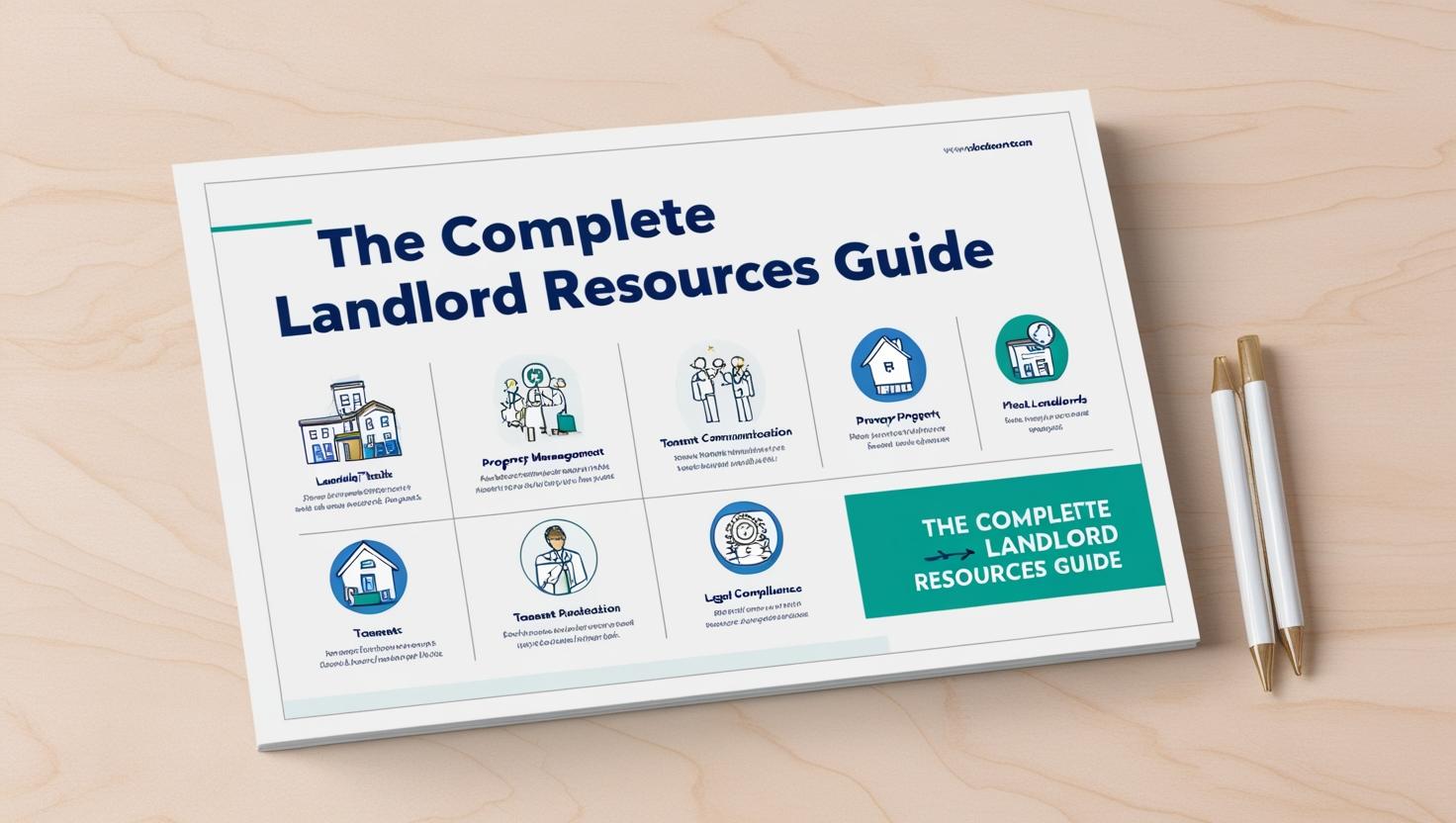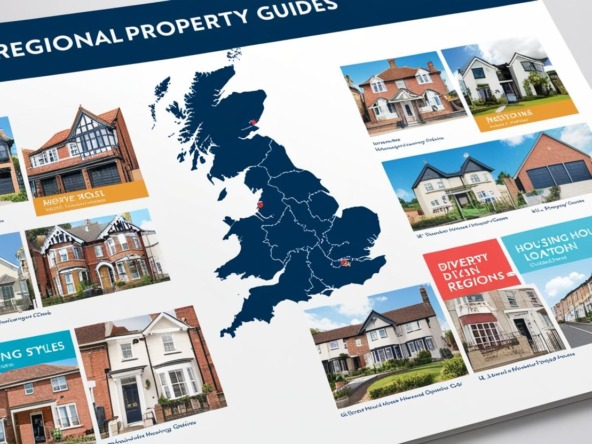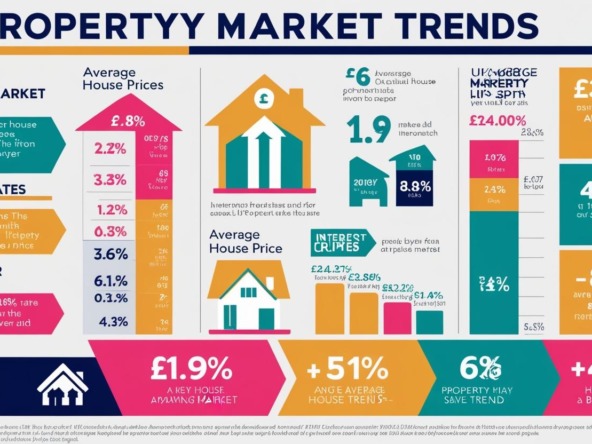Introduction
Being a landlord in the UK property market requires staying informed about ever-changing regulations, market conditions, and best practices. Whether you’re an experienced property investor with multiple units or just starting your journey with your first buy-to-let property, having access to reliable resources and information is essential for success.
This comprehensive guide aims to provide UK landlords with valuable insights and practical advice for navigating the rental market in 2025. From understanding your legal obligations to optimising your investment strategy, we’ll cover the key aspects of being a successful landlord in today’s market.
Understanding Current Landlord Obligations
Legal Requirements
The regulatory landscape for UK landlords has evolved significantly in recent years. Staying compliant with these regulations is not just about avoiding penalties—it’s about providing safe, quality housing and protecting your investment.
Key legal requirements for landlords in 2025 include:
- Right to Rent checks: Verifying that tenants have the legal right to rent property in the UK
- Energy Performance Certificate (EPC): Ensuring your property meets the minimum energy efficiency standards (currently rated E or above)
- Gas Safety Certificate: Annual gas safety checks by a Gas Safe registered engineer
- Electrical Safety Regulations: Electrical Installation Condition Reports (EICR) required every five years
- Deposit protection: Securing tenant deposits in a government-approved scheme
- Smoke and carbon monoxide alarms: Installing and maintaining working detectors
Non-compliance with these requirements can result in significant penalties, including fines and potential restrictions on your ability to evict tenants. We strongly recommend consulting with legal professionals to ensure you meet all current requirements.
Tax Considerations for Landlords
The tax landscape for landlords continues to evolve, with several significant changes affecting profitability. Understanding these implications is crucial for effective financial planning:
- Mortgage interest tax relief: Remember that landlords can no longer deduct mortgage expenses from rental income but instead receive a tax credit based on 20% of mortgage interest payments
- Wear and tear allowance: The replacement of the 10% wear and tear allowance with tax relief on actual replacement costs for furnishings and appliances
- Capital Gains Tax (CGT): The 30-day payment window (extended to 60 days in 2021) for reporting and paying CGT after selling a rental property
Working with a tax professional who specialises in property investment can help you navigate these complexities and identify legitimate tax-saving opportunities.
Buy-to-Let Market Outlook for 2025
Regional Performance Variations
The buy-to-let market performance varies significantly across different UK regions in 2025. While some areas show strong rental yields, others may offer better capital appreciation potential:
- Northern England: Cities like Manchester, Liverpool, and Leeds continue to offer some of the highest rental yields in the country, with average returns between 6-8%
- Midlands: Birmingham and surrounding areas show balanced growth in both rental income and property values
- London and South East: While offering lower initial yields (typically 3-5%), these areas traditionally provide stronger long-term capital growth
Understanding your investment goals—whether prioritising rental income or capital appreciation—should guide your location strategy.
Impact of Interest Rates on Buy-to-Let
The stabilisation of interest rates has brought some relief to landlords after a period of volatility. However, it remains essential to stress-test your investment against potential future rate increases to ensure long-term viability.
Many experienced landlords are opting for longer fixed-rate mortgage periods to provide certainty in their financial planning. Speaking with a specialist buy-to-let mortgage broker can help you identify the most competitive products for your circumstances.
Effective Property Management Strategies
Finding and Retaining Quality Tenants
Finding reliable, long-term tenants is perhaps the single most important factor in successful property management. High tenant turnover not only creates void periods but also increases administrative costs and property wear.
Effective tenant sourcing and retention strategies include:
- Thorough tenant referencing: Comprehensive background checks including credit history, employment verification, and previous landlord references
- Clear communication: Setting expectations from the beginning and maintaining open lines of communication
- Prompt maintenance responses: Addressing repair issues quickly shows tenants you value them and care about the property
- Reasonable rent increases: While it’s important to maintain market-appropriate rents, excessive increases can drive out good tenants
Self-Management vs. Letting Agents
Many landlords face the decision of whether to self-manage their properties or employ a letting agent. Both approaches have advantages and considerations:
Self-Management Benefits:
- Direct control over tenant selection and property decisions
- No management fees, improving cash flow
- Direct relationship with tenants
Letting Agent Benefits:
- Professional marketing and tenant finding
- Handling of legal compliance requirements
- Management of maintenance issues
- Buffer between landlord and tenant
For those with limited time or multiple properties, a reputable letting agent can provide valuable services that justify their fees. If you choose this route, carefully research local agents and check their credentials with organisations like ARLA Propertymark or RICS.
Maximising Returns on Your Investment
Strategic Renovations and Improvements
Strategic property improvements can significantly increase rental value and attract higher-quality tenants. Focus on upgrades that deliver the best return on investment:
- Kitchen and bathroom modernisation: These spaces heavily influence tenant decisions
- Energy efficiency improvements: Enhanced insulation, modern heating systems, and double glazing reduce tenant bills and improve EPC ratings
- Creating additional space: Where feasible, adding an extra bedroom or converting loft space can substantially increase rental value
- External appearance: Never underestimate the impact of kerb appeal on prospective tenants’ first impressions
Diversification Strategies
Experienced property investors often diversify their portfolios to spread risk and capitalise on different market opportunities:
- Property type diversification: Mixing residential types (flats, houses, HMOs) to appeal to different tenant demographics
- Geographic diversification: Investing across different UK regions to benefit from varying growth patterns
- Investment structure diversification: Considering property-backed investments alongside direct property ownership
Navigating Challenges in the Rental Market
Dealing with Problem Tenants
Even with careful screening, landlords occasionally face challenging tenant situations. Having clear procedures in place is essential:
- Documented communication: Keep records of all interactions and agreements
- Early intervention: Address issues promptly before they escalate
- Legal advice: Consult with a specialist landlord solicitor for serious problems
- Eviction procedures: Understand the legal process and required notice periods
Maintaining Cash Flow During Void Periods
Void periods represent one of the biggest financial risks to landlords. Strategies to manage and minimise these include:
- Financial buffer: Maintaining a reserve fund covering at least three months of mortgage payments and expenses
- Efficient turnaround: Having contractors and processes in place to quickly prepare properties between tenancies
- Flexible marketing: Considering short-term letting options during extended void periods
Technology Solutions for Modern Landlords
The property management sector has been transformed by technology, offering landlords powerful tools to streamline operations:
Property Management Software
Digital platforms now allow landlords to manage multiple aspects of their rental business from a single dashboard:
- Tenant communication and maintenance requests
- Rent collection and payment tracking
- Document storage and compliance reminders
- Financial reporting for tax purposes
Popular options include Goodlord, Fixflo, and Arthur, each offering different features that may suit particular landlord needs.
Smart Home Technology for Rentals
Installing smart home technology can add value to your rental property while potentially reducing costs:
- Smart thermostats: Allow better energy management and reduced bills
- Smart locks: Facilitate secure access for maintenance visits without physical key handovers
- Water leak detectors: Provide early warning of potentially costly damage
- Smart lighting: Reduces energy consumption in common areas
These technologies often appeal to younger, tech-savvy tenants and can justify premium rents in competitive markets.
Planning for Long-Term Success
Building a Sustainable Portfolio
Rather than focusing solely on rapid expansion, successful landlords think strategically about building a sustainable property portfolio:
- Leverage management: Maintaining appropriate loan-to-value ratios across your portfolio
- Cash flow positivity: Ensuring each property generates positive monthly income after all expenses
- Exit strategy awareness: Understanding potential disposal options before purchase
- Succession planning: Considering how your property investments might be managed or transferred in the future
Environmental Considerations
With sustainability becoming increasingly important to both regulations and tenant preferences, forward-thinking landlords are incorporating environmental considerations into their strategy:
- Exceeding minimum EPC requirements: Future-proofing against anticipated regulatory changes
- Renewable energy options: Exploring solar panel installation where viable
- Water efficiency measures: Installing low-flow fixtures and water-saving appliances
- Waste reduction facilities: Providing effective recycling solutions for tenants
These measures not only help meet regulatory requirements but can also reduce operating costs and attract environmentally conscious tenants.
Conclusion
The UK rental market in 2025 continues to offer substantial opportunities for informed and diligent landlords. While regulatory requirements have increased, so too have the tools and resources available to help you manage your property investments effectively.
By staying current with legal obligations, understanding market dynamics, implementing effective management strategies, and planning for long-term sustainability, you can build a rewarding and profitable property portfolio.
At yourpropertyfinder.uk, we’re committed to supporting landlords throughout their property investment journey. Our team of experts provides guidance tailored to your specific circumstances and goals, helping you navigate the complexities of the rental market.
Whether you’re considering your first buy-to-let purchase or managing an established portfolio, we’re here to help you make informed decisions that maximise your returns while providing quality housing for your tenants.
Looking for personalised landlord advice? Contact our team to discuss your specific property investment needs.
Explore our current property listings to find potential buy-to-let opportunities.





